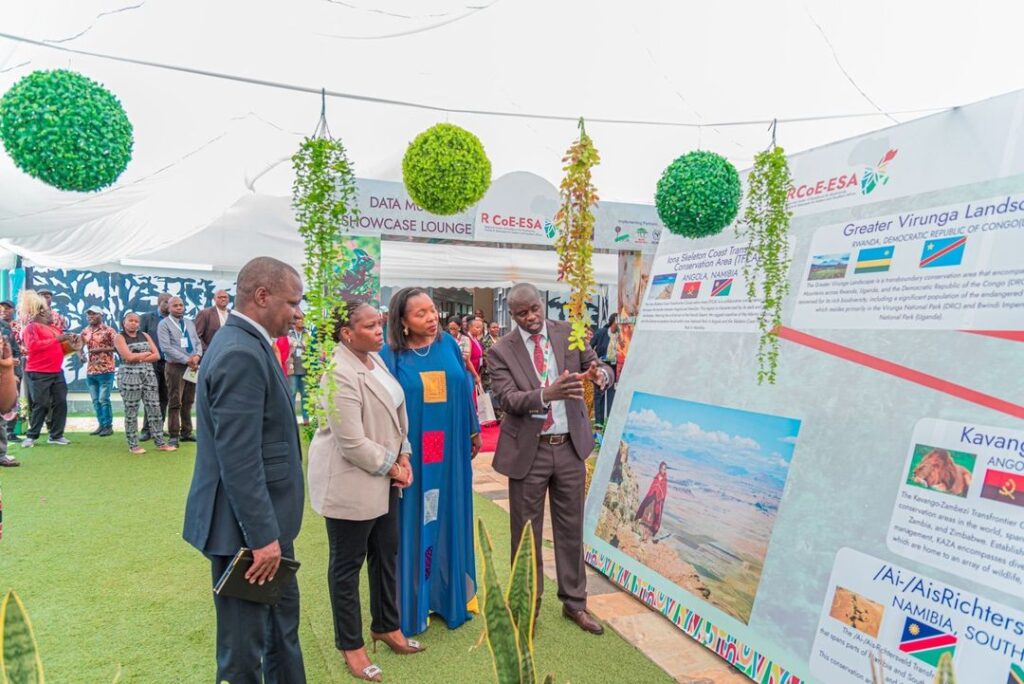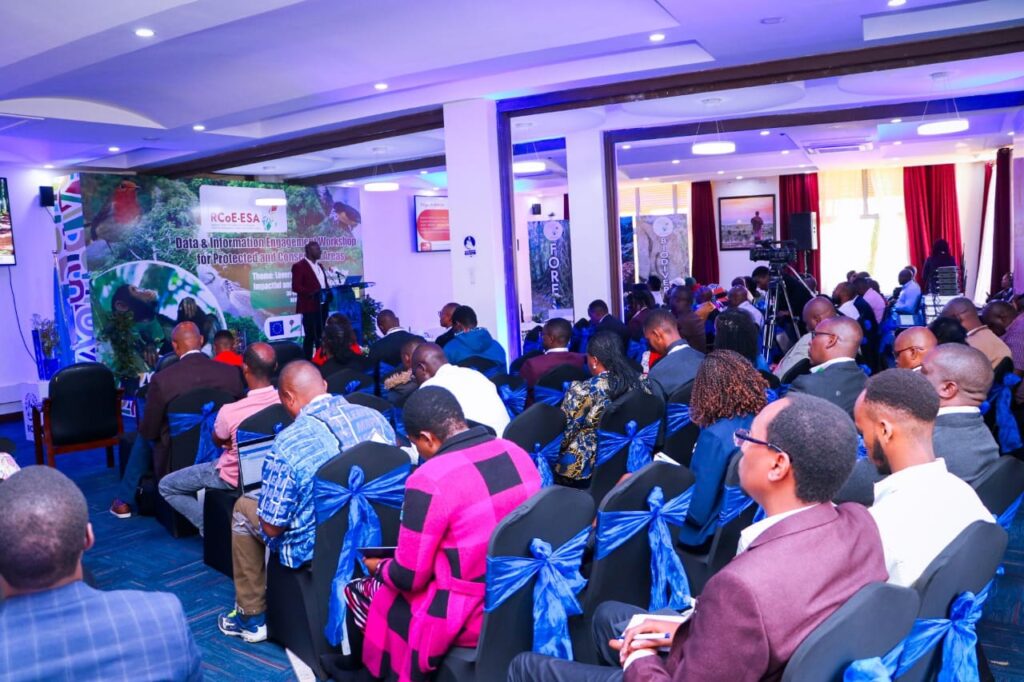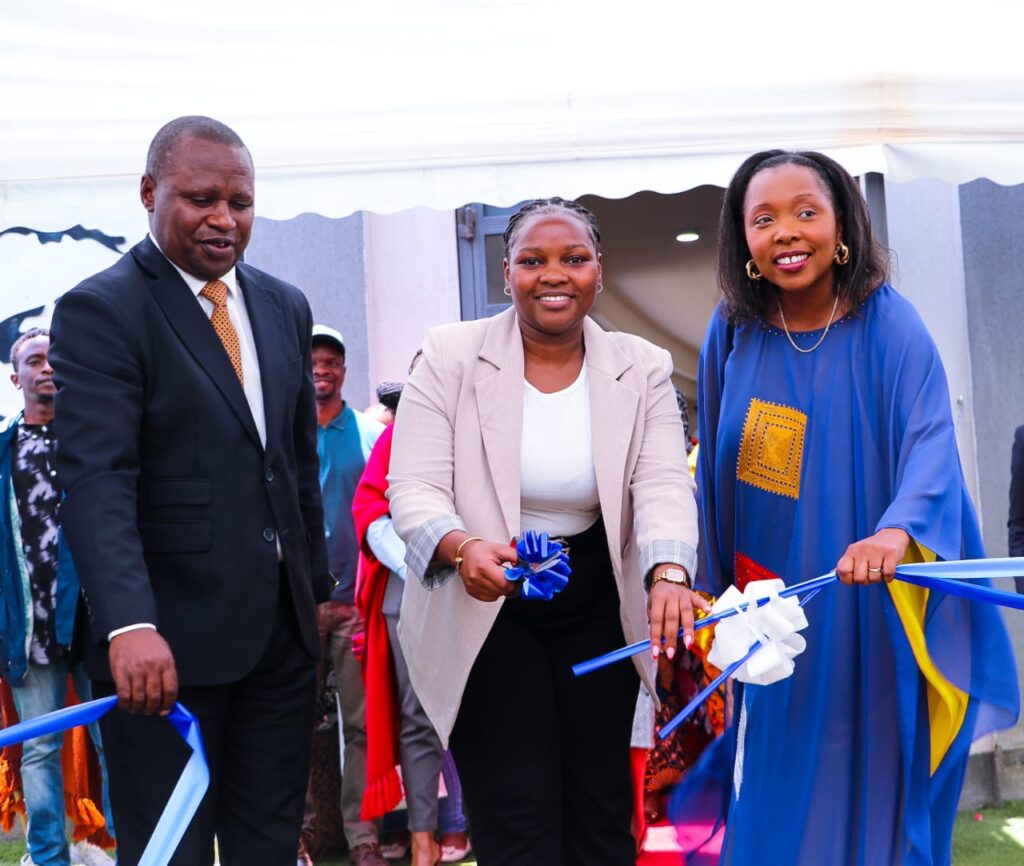Dar es Salaam. In a significant advancement for environmental conservation, the Regional Centre of Excellence (RCoE) for Biodiversity, Forests, and Seascape Ecosystems Management has unveiled a Data Geoportal platform in Nairobi this week.
This innovative tool is designed to facilitate open access to crucial ecosystem data, marking a pivotal step towards enhancing biodiversity conservation across Eastern and Southern Africa.
The RCoE Data Geoportal serves as a comprehensive resource for governments, conservation organizations, researchers, and local communities, providing real-time access to essential data for the conservation of biodiversity, forests, and seascape ecosystems.
With interactive mapping and analytical tools, users can track biodiversity, forest cover, and changes in ecosystems across borders, enabling proactive responses to environmental challenges.

“The ability to track environmental changes in real-time, analyze trends, and predict future scenarios will enable us to make informed decisions that protect our environment while promoting sustainable development,” stated Dr Festus Ng’eno, Principal Secretary in Charge of the State Department for Environment and Climate, during the launch at the Data & Information Engagement Workshop held at the Regional Centre for Mapping of Resources for Development (RCMRD) during the launch.
Dr Ng’eno emphasized the critical role of accurate data in addressing pressing environmental challenges such as climate change, deforestation, and biodiversity loss.
He highlighted Kenya’s direction in biodiversity conservation, reiterating the nation’s commitment to achieving ambitious global biodiversity targets, including the Kunming-Montreal Global Biodiversity Framework goals.

Echoing this sentiment, Dr Éliane Ubalijoro, Chief Executive Officer of the Center for International Forestry Research and World Agroforestry (CIFOR-ICRAF), stated, “Data, information, and knowledge products are essential in driving effective decision-making and governance in protected and conserved areas.
This data geoportal for biodiversity, forests, and seascape ecosystems will contribute significantly to fulfilling our national and global commitments.”
The four-day workshop, themed “Leveraging Data Insights for Impactful and Sustainable Ecosystems,” brings together conservationists, policymakers, and data specialists from 24 project countries.
It aims to strengthen relationships with institutions managing data on protected areas and demonstrate the importance of data in decision-making for governance and conservation.
Dr Ubalijoro emphasized the importance of collaboration among policymakers, technical officers, and data specialists to advance the management of biodiversity, forestry, and seascapes. She noted that while data is vital, it is the people who analyze and act on this data who truly drive change.

As the workshop progresses, participants will explore innovative, data-driven solutions to the myriad challenges facing ecosystems today. The RCoE is committed to fostering a culture of shared learning, innovation, and collaboration, equipping communities, governments, and organizations with the necessary tools to manage ecosystems sustainably.
“Environmental challenges do not respect borders, and therefore, neither should our solutions,” Dr Ng’eno remarked. This sentiment resonates with the overarching goal of the RCoE Data Geoportal—to promote data-sharing and cross-border cooperation for effective ecosystem management across the region.
As the participants embark on this collaborative journey, the RCoE Data Geoportal stands as a beacon of hope, illuminating the path towards sustainable environmental management and safeguarding the rich biodiversity of Eastern and Southern Africa.

